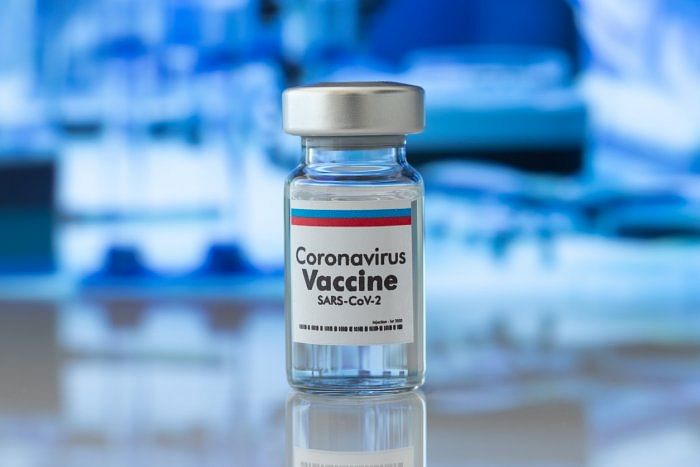
This week India crossed a major milestone of inoculating half of its target population with at least one dose of the Covid-19 vaccine, which may help in tackling the third wave of the pandemic as and when it comes. Nearly 99 per cent of healthcare workers and 100 per cent of frontline workers received the first dose, according to Union Health Secretary Rajesh Bhushan.
What has government authorities concerned about is the spike in daily Covid-19 cases in Kerala after Onam celebrations. The state reported over 30,000 fresh infections for the second consecutive day of Thursday, pushing the country's overall spike. India on Friday logged 44,658 new coronavirus infections, while the active cases jumped to 3,44,899, comprising 1.06 per cent of the total infections, according to the Union Health Ministry data.
Amidst concerns of a third Covid-19 wave and its impact on children, who are yet to be vaccinated, the National Technical Advisory Group on Immunisation (NTAGI) will soon hold a meeting to devise a roadmap for introducing Zydus Cadila's Covid vaccine in the inoculation drive. Zydus Cadila's vaccine got the Drug Controller General of India's (DCGI's) nod for emergency use on August 20 on those aged 12-18 years as well as adults. The indigenously developed world's first DNA-based needle-free Covid-19 vaccine ZyCoV-D is the first vaccine to be administered in the age group of 12-18 years in the country. The Union government is expecting ZyCoV-D to be available from the first week of October.
In another positive development, WHO chief scientist Soumya Swaminathan recently said that the coronavirus has now reached some stage of endemicity in India where there is a low or moderate level of transmission going on. The endemic stage is when a population learns to live with a virus. It's very different from the epidemic stage when the virus overwhelms a population. Click here to know the difference between an endemic, epidemic and pandemic.
While the country has pickup up pace in the number of vaccination, a new concern is rising over a new sub-lineage of the Delta variant, which is driving a surge in Israel, after it was found in India. The Indian SARS-CoV-2 Genomics Consortium INSACOG said that many cases that were earlier recorded as having been caused by the Delta variant are now being reclassified as AY.12 infections, which has all the characteristic Delta mutations except one. However, a complete reclassification and estimating the prevalence of AY.12 in India may take some time.
With an expert panel under the National Institute of Disaster Management (NIDM), the Ministry of Home Affairs (MHA), warning that the third wave of Covid-19 may peak in October, states are planning to ramp up vaccinations. Karnataka plans to vaccinate about 5 lakh people every day starting September.
Meanwhile, in order to make the process of booking a slot for the Covid-19 vaccination hassle-free and reachable to a larger number of people, the Government of India has extended the service to WhatsApp. Now anyone can register for their Covid-19 vaccination via the MyGov chatbot on WhatsApp. Click here to know how you can book a vaccine slot on WhatsApp.
As the number of people getting vaccinated increases, experts believe that demand for a booster dose may go up as breakthrough infections would rise. One genomic scientist who did not want to be named told DH that the data shows that the “proportion of breakthrough infections will go up as more people get vaccinated and that at some point almost all cases would be breakthroughs”. He added that eventually, the number of breakthrough cases will peak when the two-dose vaccination rate crosses approximately 70 per cent, resulting in a drop in cases “as the virus would find it difficult to find susceptible people”.
Meanwhile, a booster dose of Johnson & Johnson's Covid-19 vaccine sharply increased levels of antibodies, according to interim data from two early-stage trials, the company said. Several countries, including the United States, have begun offering booster doses to vulnerable individuals, including the immunocompromised, as the Delta variant has spread and some vaccinated people have caught Covid-19.
As the fear of the third wave, in which India could report over 6 lakh cases a day, the government is reportedly mulling reducing the gap between two doses of Covishield. Chairman of India's Covid-19 Working Group of NTAGI, Dr N K Arora, however, said no such proposal for changing the dose interval for any Covid-19 vaccine is under consideration.
A new study has found that a coronavirus infection presents a much higher risk of developing a blood clot than the first dose of either the Oxford/AstraZeneca or the Pfizer/BioNTech jab. The research used findings from more than 2.9 crore people who were vaccinated with the first doses of either vaccine between December 2020 and April 2021.
Undoubtedly, SARS-CoV-2 has caused the greatest pandemic of the past 100 years. Understanding its origins is crucial for knowing what happened in late 2019 and for preparing for the next pandemic virus. It has been more than 20 months since the first cases were recognised in Wuhan, China, in December 2019, and experts feel that it might soon be too late to find out where the Covid-19 originated.
In another assurance to parents who are worried about their children's safety in the third Covid-19 wave, new research decodes why children are better protected from the virus than adults.